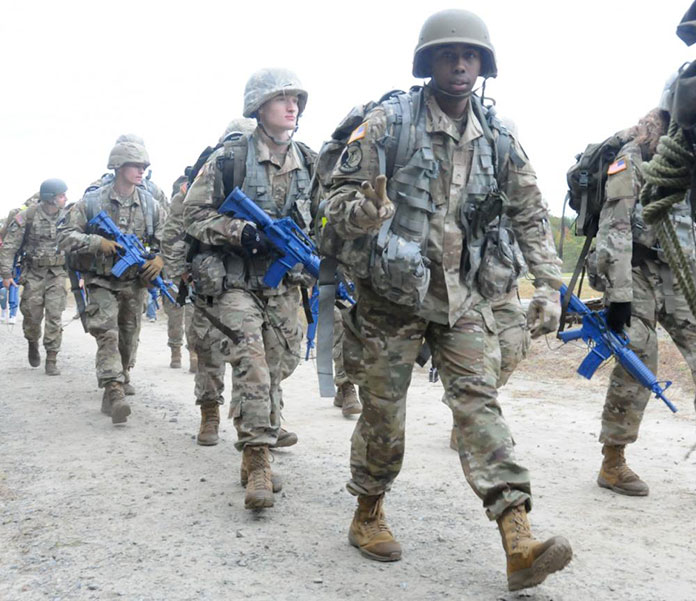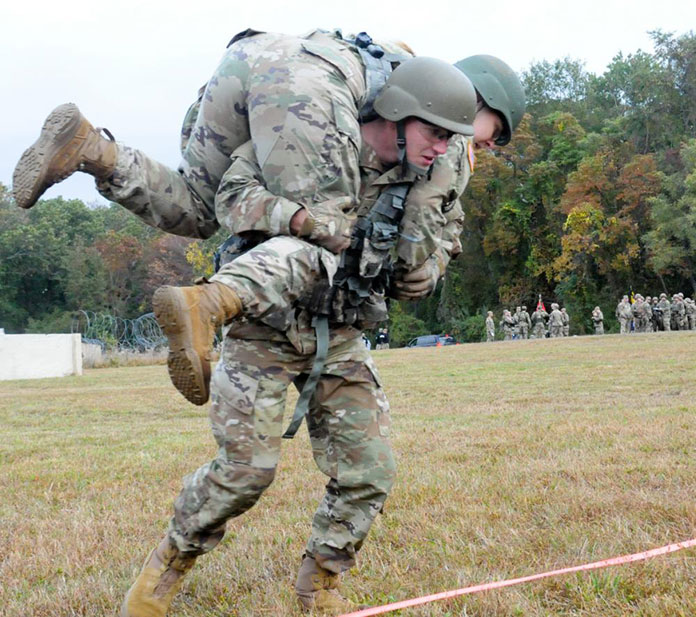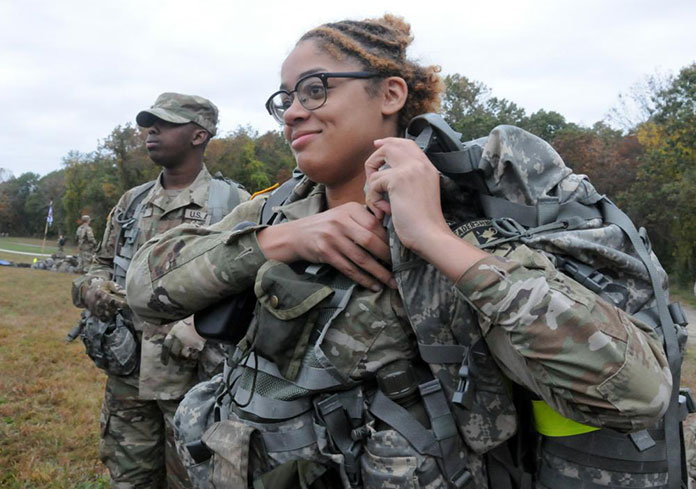
LAKEHURST – The 99th Readiness Division served as hosts of the Army Reserve’s second Brigade “Ranger Challenge” recently.
The event involved U.S. Army Reserve Officers’ Training Corps (ROTC) cadets from multiple colleges and universities across the northeastern United States including Princeton, Rutgers, Drexel, Scranton, Seton Hall, Fordham, St. Johns, Temple, UPITT and UMASS.
The competition evaluated basic warrior tasks and military knowledge to determine the top ROTC team of the challenge within the 2nd Brigade. The Ranger Challenge tested cadets mentally and physically while fostering teamwork and developing their leadership abilities. While each part of the event is designed to challenge the cadets’ physical and mental resilience, teamwork is also essential to their success during the competition.

The event included the following events:
- Rope Bridge
- Grenade Assault Course
- Weapons Proficiency
- Casualty Ops
- Obstacle Course
More than 500 cadets took part in the event which Major Paul Carroll, 2nd Brigade S3 and officer-in-charge of the event said was “a great event – cadets have a good time, and they also can be tested on their leadership skills, their decision-making skills, and their ability to be flexible, agile, and to be physically fit.”
Major Carroll explained “the competition this year was pretty unique in that we hosted it in a training area that allowed our families to come and watch the entire event.”
Family members of the cadets watched these young men and women testing their warrior skills in events such as the obstacle course, one-rope bridge, hand grenade assault course, weapons assembly, 6.3-mile road march, and night-and-day land navigation.
Master Sgt. Christopher Miller, 2nd Brigade S3 non-commissioned officer in charge remarked, “we try to make it more rigorous every year; we try to figure out what our boundaries are for our cadets and push them to those boundaries.”
“What we’ve really done is taken the events and made them more cadet-driven so they lead from the front – they’re getting that practice, that repetition that they need before becoming a full-fledged officer,” Miller added.
During this year’s Ranger Challenge, 45 ROTC teams representing colleges and universities throughout the northeastern United States were joined by teams from the U.S. Coast Guard Academy and the Air Force ROTC from Albany.
“Our cadets become officers who understand the different branches of military service. This is an opportunity for them to continue to build that relationship, but it’s also an opportunity to give back because we help each other out the entire academic year with training and just learning from each other,” Carroll said.

With this Ranger Challenge over, the top two ROTC teams will move on to compete in the annual Sandhurst Competition, the culminating event hosted every April at the U.S. Military Academy at West Point.
Miller said, “our events here are based off of the Sandhurst Competition at West Point. We try to mimic as best we can at the brigade level what they’re going to experience when they go to West Point.”
“The Coast Guard team that is participating here will also be competing at West Point, so this is also a train-up for them,” Carroll added.
Whether they win or lose, the cadets competing in Ranger Challenge will learn valuable lessons as they prepare to lead the Army into the future.
“It’s been a great experience,” Cadet Ryan Ott said.

Cadet Naya Goodman said “I enlisted before deciding to go the commissioned officer route. I wanted to know how it was at first and decided that I wanted to be a leader.”
“For me it’s mainly about setting up my future, so I have structure now and after I graduate so I’m secured for something and don’t have to worry about what I’m going to do in life,” Cadet Madison Bush said.
She added, “what better way to do it than the Army life. All my life I tried to be community oriented to give back to my community in any way I could. This is the best way I could think of in this stage of my life and forward to benefit myself and my country, that’s why I chose it.”
“It’s great to see the excitement on the cadets’ faces as they compete throughout the course of the event. It is very rigorous, but they always have smiles on their faces, and when it’s done, they know that they’ve accomplished something,” Miller added.






